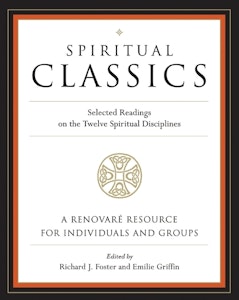Introductory Note:
Do any of us really wonder why Abraham and Sarah laughed at the heavenly announcement of a child-to-be? We would laugh too; laugh in disbelief laugh at the absurdity of it all. The Scripture tells us, “It had ceased to be with Sarah after the manner of women.” That was a polite way of saying she was no longer ovulating. Now, they may not have had all the vast medical information we have at our fingertips on conception and birth, but they knew enough to say with confidence that Sarah could not have a child. No way.
But then we hear the query that is as much for us as it is for Abraham and Sarah: “Is anything too wonderful for the Lord?” Well, there we have it. I mean, when it is put that way we have no option but to agree; yes, indeed, nothing is too wonderful for the Lord! But even so . . .
You see, we also laugh in disbelief because, like Abraham and Sarah, we are so often living in and counting on the “flesh.” The flesh says very simply, “I will rely upon what I can do in my own natural abilities and strengths without any reference to God. And, may I just say, many things can be done in the power of the flesh. I have seen whole churches built in the power of the flesh. But we cannot do the work of the Spirit in the power of the flesh, and Isaac was a work of the Spirit.
But, now comes the great reversal for Abraham and Sarah. They had laughed in disbelief, but now, with baby Isaac in their presence, they are ushered into the laughter of celebration. Sarah, we are told, exclaims, “God has brought laughter for me; everyone who hears will laugh with me” (Gen. 21:6). The laughter of doubt was transformed into the laughter of praise. The latter laughter is the better laughter.
Richard J. Foster
Renovaré Founder
 Excerpt from Spiritual Classics
Excerpt from Spiritual Classics
Sarah’s Laughter
Quantitatively speaking, you don’t find all that much laughter in the Bible, but, qualitatively, there’s nothing quite like it to be found anywhere else. There are a couple of chapters in the Book of Genesis that positively shake with it. Sarah was never going to see ninety again, and Abraham had already hit one hundred, and when the angel told them that the stork was on his way at last, they both of them almost collapsed. Abraham laughed “till he fell on his face” (Genesis 17:17), and Sarah stood cackling behind the tent door so the angel wouldn’t think she was being rude as the tears streamed down her cheeks. When the baby finally came, they even called him Laughter — which is what Isaac means in Hebrew — because obviously no other name would do.
Laughter mixed up in the Bible
Laughter gets mixed up with all sorts of things in the Bible and in the world too, things like sneering, irony, making fun of, and beating the competition hollow. It also gets mixed up with things like comedians and slipping on banana peels and having the soles of your feet tickled. There are times when you laugh to keep from crying like when the old wino staggers home in a party hat, or even in the midst of crying like when Charlie Chaplin boils his shoe for supper because he’s starving to death. But one hundred percent, bonded, aged-in-the-wood laughter is something else again.
Making merry till the cows come home
It’s the crazy parrot-squawks that issue out of David as he spins like a top in front of the Ark (2 Sam. 6:16 – 21).
It’s what the psalms are talking about where they say, “When the Lord had rescued Zion, then our mouth was filled with laughter” (Ps. 126:1 – 2), or where they get so excited they yell out, “Let the floods clap their hands, let the hills sing for joy together!” because the Lord has come through at last (Ps. 98:8).
It’s what the Lord himself is talking about when he says that on the day he laid the cornerstone of the earth “the morning stars sang together, and all the sons of God shouted for joy” (Job 38:7), and it’s what the rafters ring with when the Prodigal comes home and his old crock of a father is so glad to see him he almost has a stroke and “they began to make merry” and kept on making merry till the cows came home (Luke 15:24).
Blessed laughter
It’s what Jesus means when he stands in that crowd of cripples and loners and odd-balls and factory rejects and says, “Blessed are you that weep now, for you shall laugh” (Luke 6:21).
Nobody claims there’s a chuckle on every page, but laughter’s what the whole Bible is really about. Nobody who knows his hat from home-plate claims that getting mixed up with God is all sweetness and light, but ultimately it’s what that’s all about too.
Ecstatic laughter
Sarah and her husband had plenty of hard knocks in their time, and there were plenty more of them still to come, but at that moment when the angel told them they’d better start dipping into their old age pensions for cash to build a nursery, the reason they laughed was that it suddenly dawned on them that the wildest dreams they’d ever had hadn’t been half wild enough (Gen. 17,18,21).
Originally in Peculiar Treasures: A Biblical Who’s Who. HarperSanFrancisco, 1993
Published in Spiritual Classics: Selected Readings on the Twelve Spiritual Disciplines Richard Foster and Emilie Griffin, Editors. New York: HarperCollins, 2000.
Text First Published January 2000


